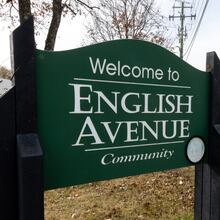Nearly six years of growth has brought the metro Atlanta economy to a pivot point: Can the good news go on, or are we due for another slide?
The signs simultaneously point in different directions – strengths and vulnerabilities, along with many unknowns.
But to be an entrepreneur means to be optimistic, said David York, owner of Barking Hound Village, which provides daycare for dogs in seven locations and plans to expand to other cities.
Based on his own view of the economy, he predicts a good year ahead.
“It is just the demand for the business. It’s growing,” he said. “We’ve seen the real estate market staying strong and dog ownership is going up as well.”
The dog-owner barometer aside, the region enters 2016 with some momentum – and a few caution flags.
— The region added about 70,000 jobs in 2015. That’s good, but not as strong as the year before.
— It’s added 312,000 jobs in five years. Yet the percentage of people working is lower than pre-recession.
— The number of people working is up 212,000 from five years ago – but that’s barely back to pre-recession levels.
— Since the worst of the recession, the unemployment rate has fallen by nearly half. It finally matched the national rate in November.
There’s upside left, said Jim Hansberger, managing director, Hansberger & Merlin at Morgan Stanley Wealth Management in Atlanta.
“This is, after all, the weakest post-recession recovery since World War II,” he said. “We’ve got probably got a lot of recovery to go.”
For most people, recovery and recession are about jobs and paychecks. And the six-plus years since the official end of the recession have told a very uneven tale.
Lower quality jobs
“When it comes to growth and jobs and wages, it is about quality versus quantify,” said Mark Vitner, senior economist, Wells Fargo. “A lot of the jobs added were disproportionately low-paying, part-time, contingent jobs.”
One of the only sectors to have consistently grown is healthcare, with hiring both low- and high-wage.
At the low end are many unskilled workers cleaning bed pans or sweeping up in nursing homes and other facilities. But physicians and specialists are paid well, as are many nurses.
“There’s a shortage of nurses,” said Anna Simelane, assistant vice president for talent at Cancer Treatment Centers of America in Newnan.
The hospital typically pays an experienced nurse with general experience about $68,000 a year, while a nurse with specialized experience – like surgery – receives about $76,000, she said.
Hiring at the Newnan hospital has surged since it opened less than four years ago, she said. It’s filled 1,100 positions, already doubling the initial five-year estimate, Simelane said. It plans to fill 200 to 300 in the next year.
“We don’t believe a bump in the road would impact us,” she said.
But the story of the Atlanta economy hangs mostly on housing. It was the sector that carried the region out of the 2001 bust, pulling homeowners and their equity lines of credit to stratospheric heights and then dropping them like a stone.
Modest housing rebound
The housing bust cost homeowners billions in home values and tens of thousands of people their jobs. The rebound in housing has been modest, but any recovery in the sector lifts many parts of the economy.
“After the crash, it was really bad in the housing sector,” said Mark Blanchard, co-owner and CEO at Atlanta-based Seven Stone, which makes counter tops and floors. “But this has been a very good year for us. This was better than last year. And the new year looks just as good, if not better.”
Much of the environment is good for housing: low mortgage rates, an influx of young professionals and rising rents that make purchases more attractive. Orders have picked up for new homes as well as remodeling – both signs of an improving market.
Seven Stone has about 95 of its 300 employees in Atlanta and it is hiring sales people and factory workers, Blanchard said – especially now, as the company runs two shifts.
However tepid, the expansion is one of the longest on record. That in itself makes some experts nervous – usually, by the time a recovery gets to be this long in the tooth, something happens to kill it and the economy tips into recession.
For now, the horizon doesn’t show the kind of things that ruined most previous expansions: soaring energy prices, frenzied investments or massive overproduction of goods.
But there are dangers.
Some are global: China’s slowdown, Europe’s ongoing woes.
More direct a threat comes from the strengthening dollar. That is great if you are buying imported goods or taking an overseas vacation, but awful if you are an exporter.
“It’s concerning, nationally,” said K.C. Conway, senior vice president at SunTrust Bank. “It’s important for us in the southeast because we do a lot of manufacturing and exporting. So we need to watch each month’s trade numbers.”
A positive view
On the other hand, the economy is less dependent on factories than it used to be. And the corporate and service sectors have been humming, Conway said.
“We have expansions. We have relocations like Mercedes and Comcast. I will not be surprised if Atlanta produces almost 80,000 jobs next year.”
Wells Fargo senior economist Mark Vitner shares the general optimism.
“Georgia has a lot going for it,” Vitner said. “I think that job growth will be somewhat better than the national pace. And the quality of the jobs should be pretty good. There will be a lot more in the tech sector. There will jobs in construction.”
Various federal cuts hurt the state, but they seem to be in the rearview mirror, he said.
“In many ways, 2016 will look like 2015, but a little better.”
About the Author




